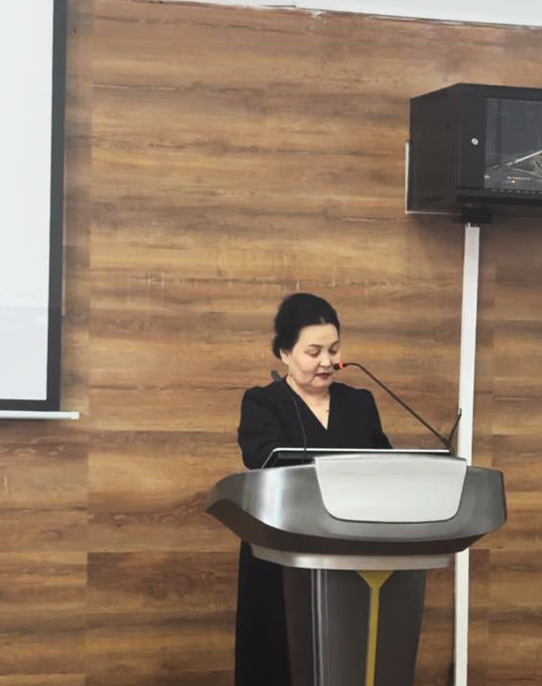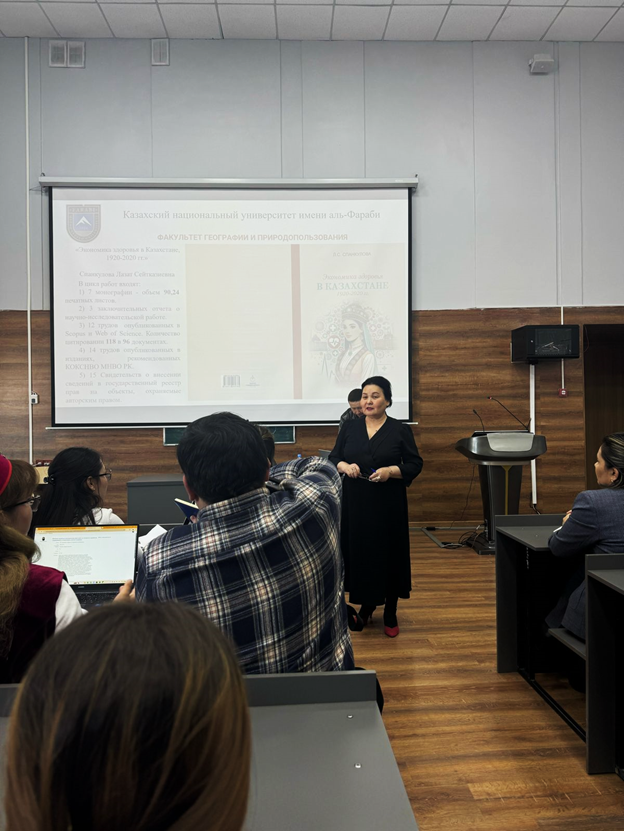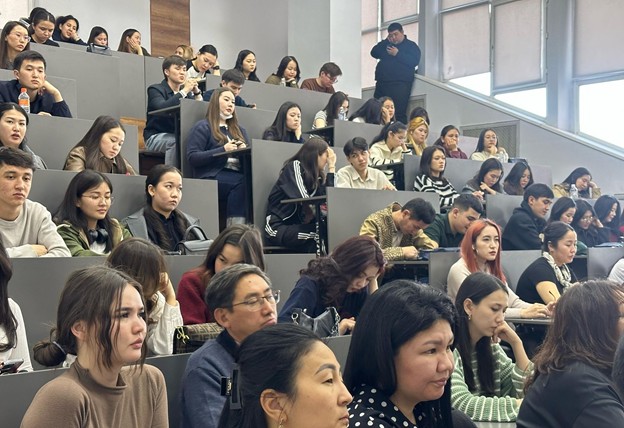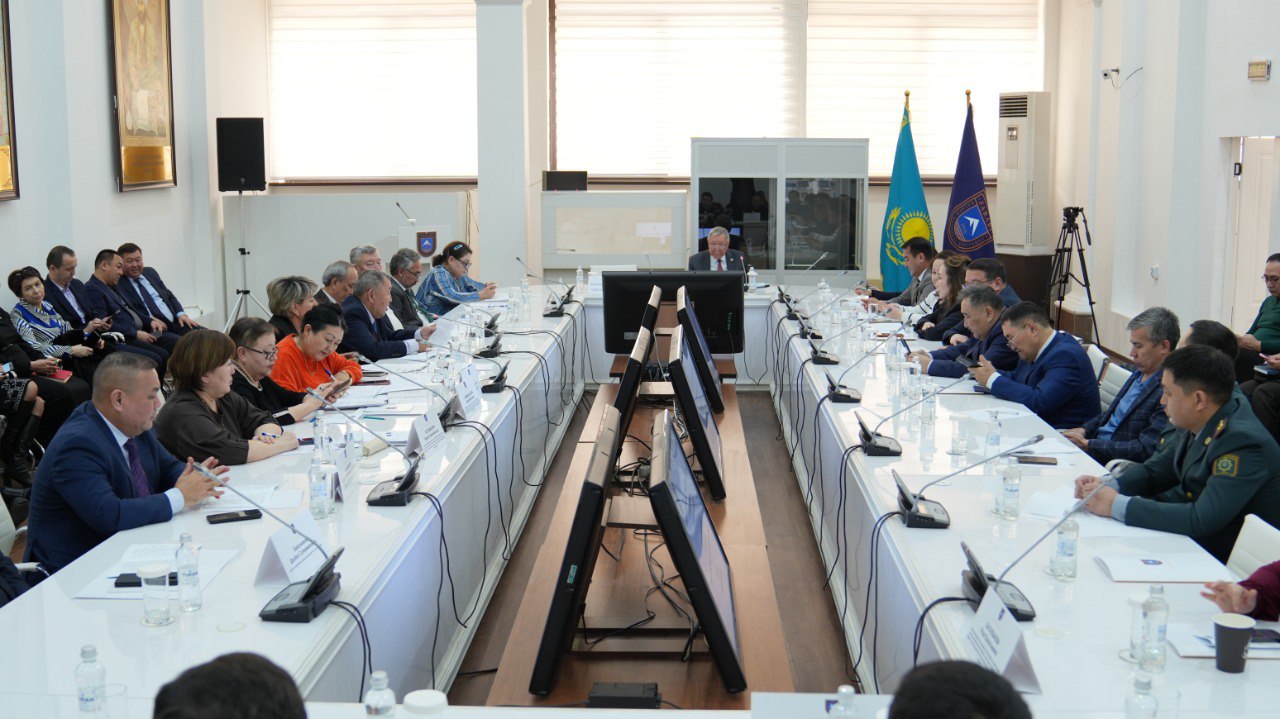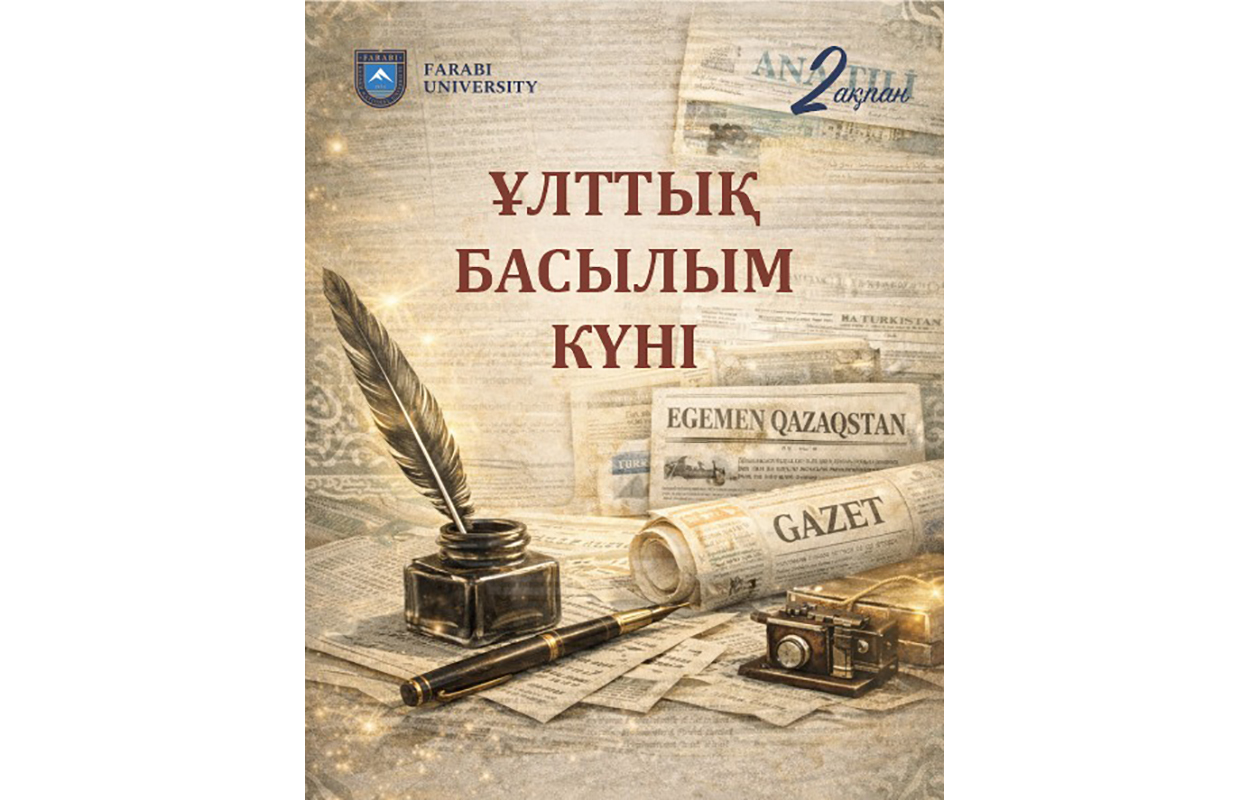Meeting with Lazzat Spankulova at Abai KazNPU: A Perspective on Healthcare Economics
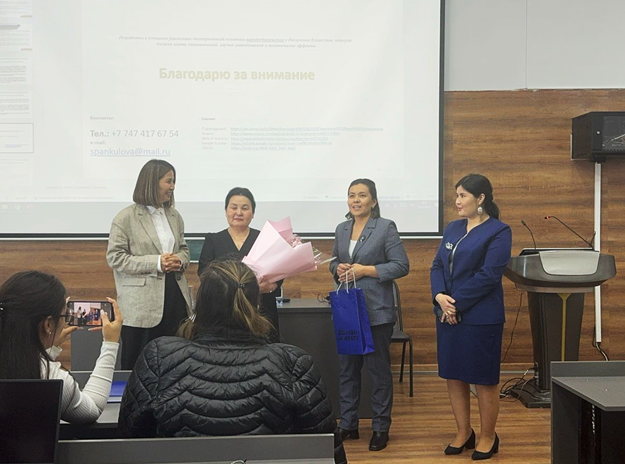
On March 18, 2025, a scientific and academic meeting took place at Abai Kazakh National Pedagogical University, featuring Lazzat Spankulova — an outstanding economist and mathematician, researcher in healthcare economics, doctor of economic sciences, and professor.
The event was organized as part of an initiative by the Academy of Sciences of Kazakhstan, under the President of the Republic of Kazakhstan's directive. The main goal of the meeting was to unite successful scientists and introduce them to cutting-edge achievements in various scientific fields. During the event, a report was delivered on the topic "Healthcare Economics in Kazakhstan (1920-2020): Interdisciplinary Research, Modeling, and Quantitative Data Analysis in Social Sciences."
In her lecture, Lazzat Seytkazievna provided a detailed overview of the historical and contemporary aspects of the development of healthcare economics in Kazakhstan. Special attention was given to the role of interdisciplinary research, modeling methods, and quantitative data analysis, which are important tools for addressing pressing public health and economic challenges.
The event was attended by graduate students, PhD students, and faculty members from Kazakh National University named after al-Farabi, who actively participated in discussions, asked questions, and exchanged opinions. The topics of discussion ranged from theoretical aspects of healthcare economics to practical approaches for improving this sector in Kazakhstan.
This meeting made a significant contribution to deepening scientific cooperation among leading scholars in the country and expanding knowledge in the fields of economic science and healthcare. A key outcome of the meeting was the strengthening of scientific exchange and the development of new opportunities for inter-university collaboration.
Such an event, organized as part of the presidential initiative, underscores the importance of the interaction between science and education, as well as Kazakhstan's role in promoting new scientific ideas and methods that will help address key development challenges in the country. The meeting is also closely aligned with several Sustainable Development Goals (SDGs). SDG 3: Good Health and Well-being — The lecture on healthcare economics in Kazakhstan is directly related to improving the quality and accessibility of medical services, as well as effectively managing resources in healthcare. SDG 4: Quality Education — The participation of students, graduate students, and faculty members in the scientific meeting contributes to improving the educational process and developing scientific competencies in the fields of healthcare and economics. SDG 9: Industry, Innovation, and Infrastructure — The use of interdisciplinary methods and models for data analysis in healthcare economics aligns with the development of innovative approaches in scientific research. SDG 17: Partnerships for the Goals — Strengthening scientific cooperation between universities and scholars in Kazakhstan contributes to the creation of sustainable partnerships to address global sustainable development challenges.
